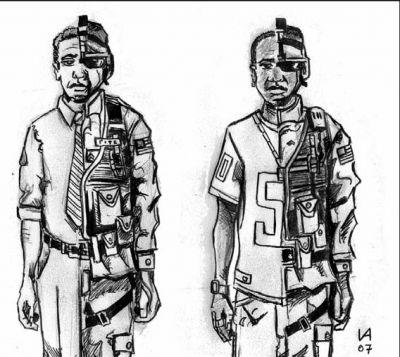It’s an issue that affects college-age men directly, with the potential to affect all other US citizens in the same group as well. At the age of 18, men are expected to sign up for the draft, and it can be a confusing experience. If one was not already well immersed into the routine motions of American life, the instance of military conscription may be especially difficult to understand. Those in armed service are held in high esteem, as natural born American leaders who go above and beyond to serve their country. And despite the fact that the U.S. military is currently entirely composed by volunteers and the all-male draft has been declared unconstitutional, there remain both structural and social consequences for men who fail to register for the draft.
Many of these structural consequences take effect on men over the age of 25, according to a recent USA Today report, but other problems may affect men who have not signed up for the draft as soon as they come of age. Although socially the failure to register for selective service may carry different significance, it is technically a crime punishable by a five-year prison sentence or a fine of $250,000. While only a small minority of men have even been charged with draft evasion, the notion of this criminal penalty still carries weight in situations where others know this information.
The structural consequences of draft evasion include obstacles to obtaining student financial aid, government jobs, and US citizenship, according to the same USA Today report. The inaccessibility of these support programs can take effect within the 30 days of a male’s 18th birthday, the legal period that he is required to register. However, the consequences of a failure to register only become permanent as soon as a man’s 26th birthday.
One of the ongoing debates surrounding this topic centers on ineligibility of capable adult females to register for the draft. However, a federal judge has recently ruled the male-only draft unconstitutional, according to a recent USA Today report. The motivation for this decision was largely influenced by the increasing role of women in the U.S. military, as well as by the changing roles and requirements in modern military positions. On the surface level, this change may seem to indicate that eligible female citizens will also become required to register for the draft, but it could also feasibly lead to the discontinuation of the draft.
In many respects, neither of these two possibilities carry any true significance. Since the selective service registration system was reinstituted in 1980 the draft has not been reemployed and the current all-volunteer U.S. army has handled all conflicts in which the U.S. has been involved. In reference to United States own action in 1977 by pardoning the multitudes of men who dodged the draft for the Vietnam War, it is not reasonable to permanently punish those who refute a system of selective service that was almost universally disliked during the period in which it was active. As an incentive to motivate those who have ignored selective service to do so, it’s pointless. There is a strong argument to suggest that the successes of the all-volunteer army will lead naturally to privatized volunteer armies, some of which already exist, according to a recent article by Vox.
Those that volunteer to serve in the military are honored and revered, and justly. But if one who volunteers goes above and beyond to serve their country, then one who demurs from service cannot abstain from their natural duty. The two are mutually exclusive: either service is a responsibility, or it is a form of altruistic charity. Still, regardless on one’s stance on the ethics of service, the penalties and criminality imposed on those who do not register serve no practical purpose given the forward-moving success of the all-volunteer military.


































